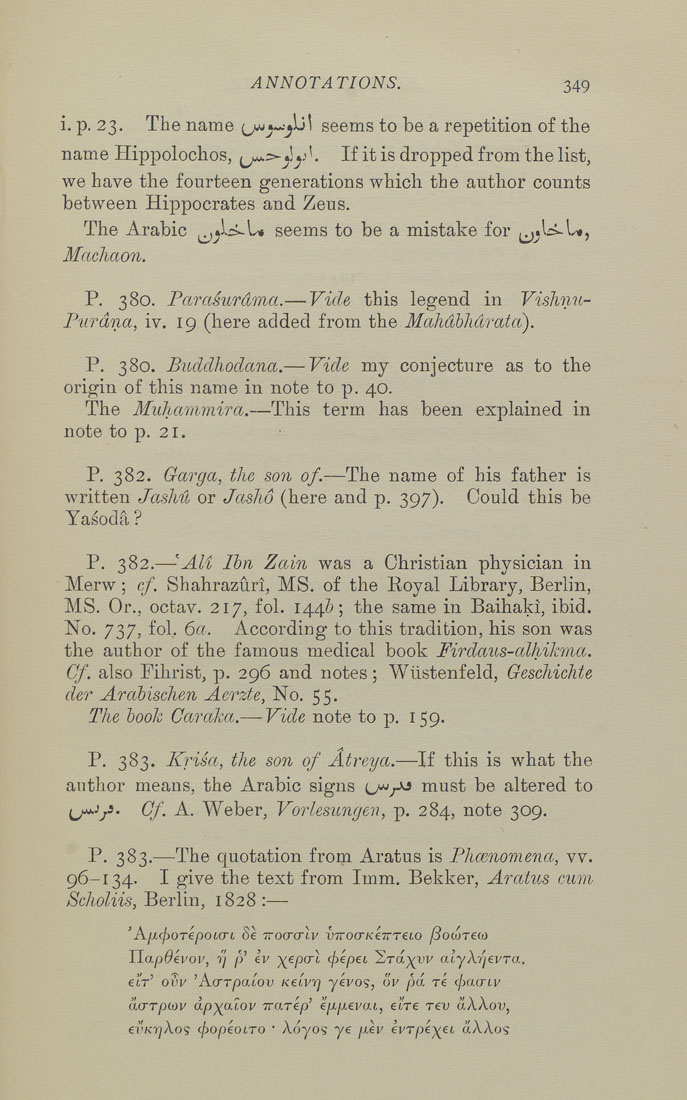ANNOTATIONS. 349
i. p. 23. The name ijm^^^\j\ seems to be a repetition of the
name Hippolochos, ^j^^^ly^. If it is dropped from the list,
we have the fourteen generations which the author counts
between Hippocrates and Zeus.
The Arabic ^^^l^-U seems to be a mistake for ^j^^ld-U,
Mctchaon.
P. 380. Petrctsitretma.— Viele this legend in Vishnu-
Purdna, iv. 19 (here added from the Mcthdbhdratet).
P. 380. Bitddhodanct.— Vide my conjecture as to the
origin of this name in note to p. 40.
The Muhetmmira.—This term has been explained in
note to p. 21.
P. 382. Garga, the son of.—The name of his father is
written Jctshil or Jetsho (here and p. 397). Could this be
Yasoda ?
P. 382.—'AH Ibn Zctin was a Christian physician in
Merw ; cf. Shahrazuri, MS. of the Royal Library, Berlin,
MS. Or., octav. 217, fol. 144b; the same in Baihaki, ibid.
No. 737, fol. 6a. According to this tradition, his son was
the author of the famous medical book Firdaus-ctlhikma.
Gf. also Fihrist, p. 296 and notes; Wlistenfeld, Geschichte
der Arabischen Aerzte, No. 55.
The book Getrctket.— Vide note to p. 159,
P, 383. Krisct, the son of Atreyct.—If this is what the
author means, the Arabic signs o^/J must be altered to
U^V' ^f- ^- Weber, Vorlesungen, p. 284, note 309,
P. 383.—The quotation from Aratus is Phasnomenct, vv.
96-134. I give the text from Imm. Bekker, Arettus cum
ScJtoliis, Herlm, 1828:—
'AjjiffiOTepoLo-L Se T70(T0"tv VTTOCTKeTVTeLO fSowTew
TIa.pdevov, rj p' ev xepa-l cj^epeL ^Td)(yv a.lyXyevTO..
etV' ovv 'Ao"Tpatou Ketvy yevos, dv pd Te (jnuriv
doTTpwv dp^atov TvaTep' eppeva.L, etVe Tev dXXov,
evKyXos (jiopeoLTO • Adyos ye yxev evTpe^eL dXXos
|








